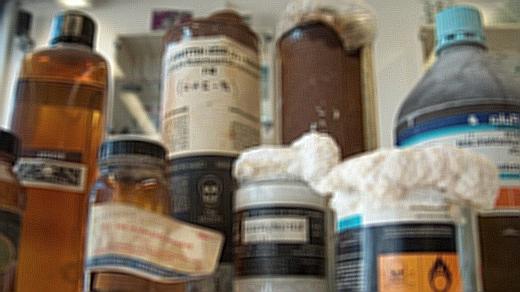Are you aware that hydrogen peroxide can be hazardous to your health and the environment if not handled correctly? This common household product is used for disinfecting, bleaching, and other purposes.
But when not treated and disposed of properly, it can be risky. If you have hydrogen peroxide in your home, it’s important to know how to dispose of it safely. In this blog post, we’ll explore the right ways to dispose of hydrogen peroxide for both your safety and the planet’s.
We’ll also discuss what not to do when disposing of this chemical. So, if you want helpful tips on how to dispose of hydrogen peroxide safely, keep reading.
What is Hydrogen Peroxide?
Contents
- 1 What is Hydrogen Peroxide?
- 2 How to Dispose of Hydrogen Peroxide
- 3 Food-Grade Hydrogen Peroxide Disposal
- 4 Expired Hydrogen Peroxide Disposal
- 5 Can You Pour Hydrogen Peroxide Down the Drain?
- 6 Safety Precautions When Disposing of Hydrogen Peroxide
- 7 Negative Effects of Hydrogen Peroxide
- 8 Proper Storage and Handling of Hydrogen Peroxide
- 9 Environmental Impact of Improperly Disposing of Hydrogen Peroxide
- 10 Conclusion
It’s a chemical compound composed of two hydrogen atoms and two oxygen molecules. It’s usually a colorless liquid with a slightly bitter taste, and it can be purchased in concentrations of 3–10%.
Hydrogen peroxide has many applications in the home, from cleaning surfaces to whitening teeth.
But it’s important to handle it safely. If you spill some on your skin, rinse it off with cool water right away.
Never mix hydrogen peroxide with other chemicals or cleaners, as this could lead to a hazardous reaction.
When disposing of hydrogen peroxide, do so responsibly. Pour small amounts of water into the drain first, then flush with plenty of water afterward. Don’t pour large amounts down the drain, as this could damage septic systems and pollute groundwater.
Hydrogen peroxide is an essential household chemical but must be treated with care.
How to Dispose of Hydrogen Peroxide
Understand the Risk of Hydrogen Peroxide
Hydrogen peroxide is a strong oxidizing agent and can cause serious harm if not handled properly.
It can cause skin, eye, and respiratory irritation and even chemical burns if it comes into contact with the skin. It can also be toxic if ingested or inhaled in large amounts.
Therefore, it is important to understand the risks associated with hydrogen peroxide before attempting to dispose of it.
Check Local Regulations
It is important to check local regulations regarding the disposal of hydrogen peroxide. Different states may have different regulations on how to dispose of hazardous materials such as hydrogen peroxide.
For example, some states may require that it be taken to a hazardous waste facility for proper disposal.
Neutralize Hydrogen Peroxide
If allowed by local regulations, hydrogen peroxide can be neutralized before disposal.
This can be done by adding a small amount of an acid, such as vinegar or lemon juice, to the hydrogen peroxide and stirring until it is completely mixed.
This will neutralize the hydrogen peroxide and make it safe for disposal.
Dispose of Hydrogen Peroxide in a Sealed Container
If local regulations allow, hydrogen peroxide can be disposed of in a sealed container.
The container should be labeled as containing hydrogen peroxide and placed in a secure area away from children and pets.
The container should also be placed in an area where it will not be disturbed or exposed to sunlight or heat.
Contact the Local Waste Management Facility
If local regulations do not allow for the disposal of hydrogen peroxide at home, then contact your local waste management facility for instructions on how to properly dispose of it.
They will be able to provide information on where and how to safely dispose of the hydrogen peroxide.
Food-Grade Hydrogen Peroxide Disposal
When it comes to disposing of food-grade hydrogen peroxide, safety and responsibility should be your top priorities. This powerful oxidizer can cause significant damage to the environment if not handled properly.
To ensure the most effective disposal, it’s best to consult with your local waste disposal agency or hazardous materials facility for the best way to safely get rid of it.
If no other option is available, you can pour food-grade hydrogen peroxide down the drain, but only after diluting it with water in a 1:1 ratio.
Once that’s done, make sure to flush out the drain with plenty of cold water so that all traces of the chemical are removed from the pipes and don’t enter any nearby waterways or aquifers.
Expired Hydrogen Peroxide Disposal
When it comes to keeping your home clean and safe, hydrogen peroxide is a must-have. But it’s important to remember that this chemical has a shelf life and can become less effective over time. So, what do you do with expired hydrogen peroxide?
The best way to dispose of expired hydrogen peroxide is to take it to a hazardous waste disposal site or contact your local waste management service for advice. You must never pour expired hydrogen peroxide down the drain, as this could have serious environmental consequences.
If you’re disposing of large quantities of expired hydrogen peroxide, make sure you wear protective clothing and safety glasses for your protection.
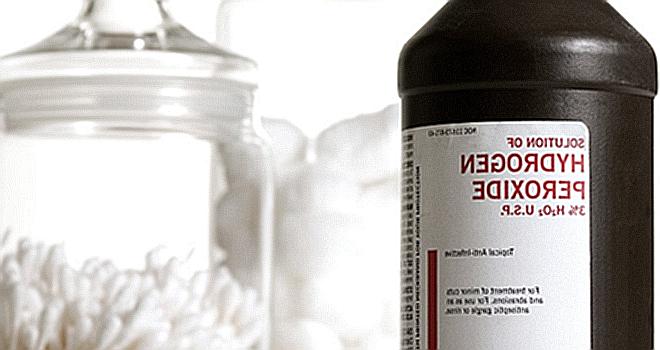
Disposing of expired hydrogen peroxide may seem daunting, but following the right steps can make the process much easier.
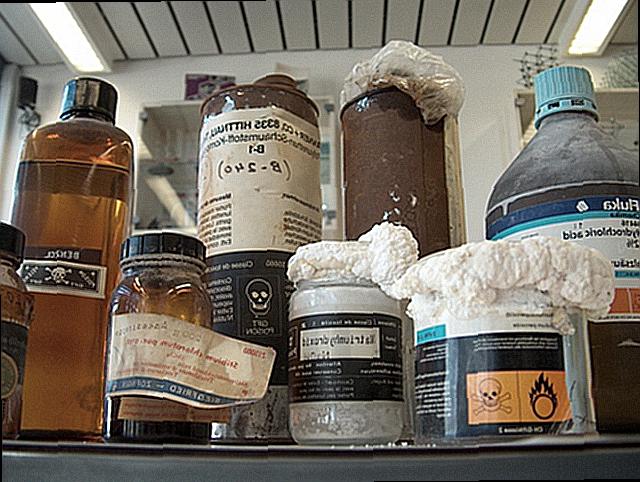
Always adhere to local regulations when dealing with hazardous materials such as this one, and take the necessary precautions to keep your home safe and clean for years to come.
Can You Pour Hydrogen Peroxide Down the Drain?
The answer is no. Pouring hydrogen peroxide down the drain is not recommended, as it can damage the environment and potentially harm wildlife.
Hydrogen peroxide is a strong oxidizing agent, meaning it can react with organic matter in the environment and cause pollution. If you must dispose of hydrogen peroxide down the drain, make sure to dilute it with plenty of water first.
This will help reduce its concentration and minimize its impact on the environment.
Additionally, never pour large quantities of hydrogen peroxide down the drain at once; this could lead to a dangerous reaction with other substances in your pipes or septic system.
So, if you’re considering pouring hydrogen peroxide down the drain, keep in mind that it is not recommended and should be handled with caution.
To keep your pipes safe, your environment clean, and wildlife healthy, dilute it with water first and don’t pour large quantities at once.
Safety Precautions When Disposing of Hydrogen Peroxide
Safety is paramount when it comes to disposing of hydrogen peroxide.
To ensure that the material is handled and disposed of properly, it is essential to take the necessary precautions.
Wear protective gloves and goggles when handling hydrogen peroxide, as well as keep it away from heat and flames as it is flammable. It can irritate the skin and eyes if it comes into contact with them.
When disposing of hydrogen peroxide, do so in a well-ventilated area and clean up any spills immediately. Lastly, comply with all local laws and regulations regarding hazardous material disposal.
By following these safety guidelines when disposing of hydrogen peroxide, you will help keep everyone safe.
Negative Effects of Hydrogen Peroxide
Hydrogen peroxide is a powerful oxidizing agent that can be dangerous if not handled with care.
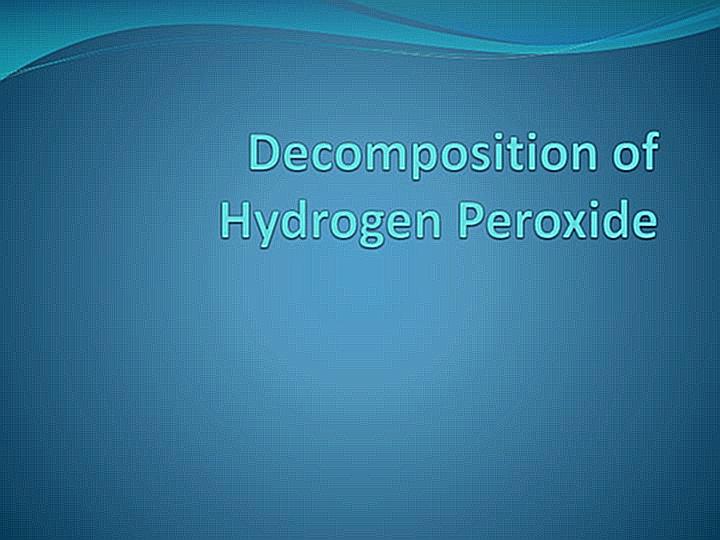
Exposure to high concentrations of hydrogen peroxide can have serious respiratory effects, such as coughing, wheezing, shortness of breath, and chest pain. Inhaling hydrogen peroxide can also irritate the lungs and lead to lung damage.
Additionally, it may cause skin and eye irritation. Prolonged exposure to hydrogen peroxide may result in headaches, dizziness, nausea, and vomiting—all symptoms of chemical poisoning.
If ingested in large quantities, it can cause stomach irritation and even death. To prevent any negative effects from occurring, it’s essential to use caution when handling hydrogen peroxide.
Proper Storage and Handling of Hydrogen Peroxide
Do you need to know how to store and handle hydrogen peroxide safely? Proper storage and handling of hydrogen peroxide are essential for its safe disposal. Here are some key tips to keep in mind:
- First, store hydrogen peroxide away from direct sunlight, heat, and other sources of ignition. Keep it in a cool, dry place and away from any combustible materials. Make sure the lid on the container is tightly sealed to prevent spills or leaks.
- When handling hydrogen peroxide, always wear protective gloves and goggles, as the chemical can cause skin irritation or burns if it comes into contact with your skin. Avoid inhaling the fumes, as they can cause respiratory issues.
- Finally, before disposing of hydrogen peroxide, make sure you follow the manufacturer’s instructions or consult with a professional beforehand. This will ensure that it is disposed of safely and without incident.
Environmental Impact of Improperly Disposing of Hydrogen Peroxide
Hydrogen peroxide is a common household product, but if it is not disposed of properly, it can have serious consequences for the environment.
Improper disposal of hydrogen peroxide can lead to contamination of soil and water, as well as affect air quality.
Furthermore, it could deplete oxygen levels in bodies of water, which would be detrimental to aquatic life.
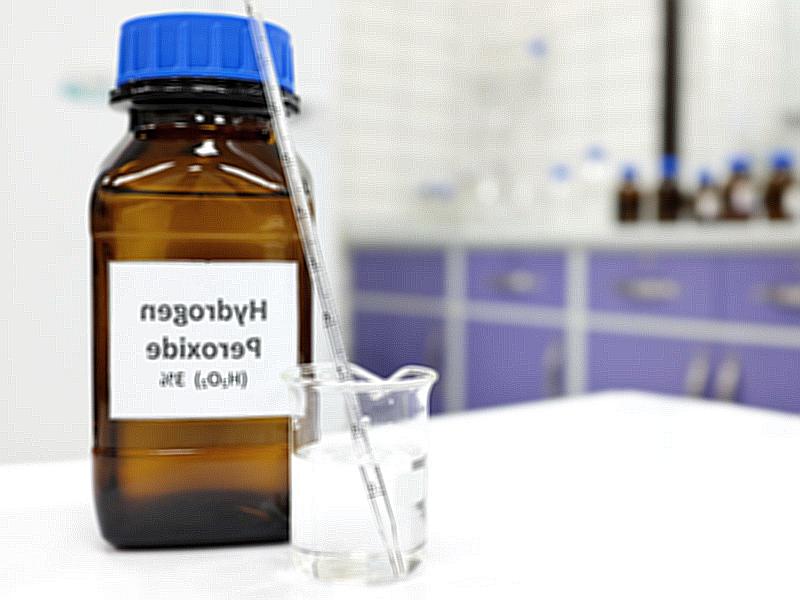
Not only that, but when ingested or inhaled in large amounts, hydrogen peroxide is poisonous to plants, animals, and humans.
Therefore, it’s essential to take proper precautions when disposing of any hydrogen peroxide.
Failing to do so could result in significant environmental damage or health risks.
Conclusion
It’s essential to take the right steps when handling hydrogen peroxide. To safeguard yourself and the environment, you should store and handle it properly and dispose of it safely.
Never pour large amounts down the drain, as this could be hazardous to your health or cause environmental damage.
If you have food-grade or expired hydrogen peroxide, contact your local waste management company for assistance or take it to a hazardous waste disposal facility.
When dealing with large quantities, wear protective clothing and safety glasses, and never mix them with other cleaners or chemicals.
By following these simple guidelines, you can enjoy all the benefits of hydrogen peroxide while protecting yourself and the planet.
